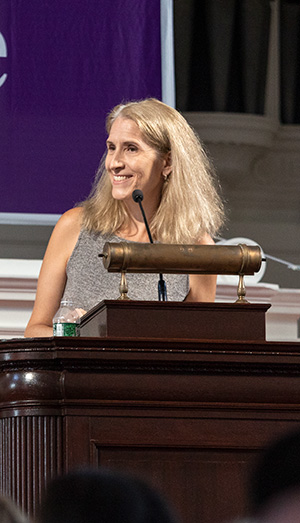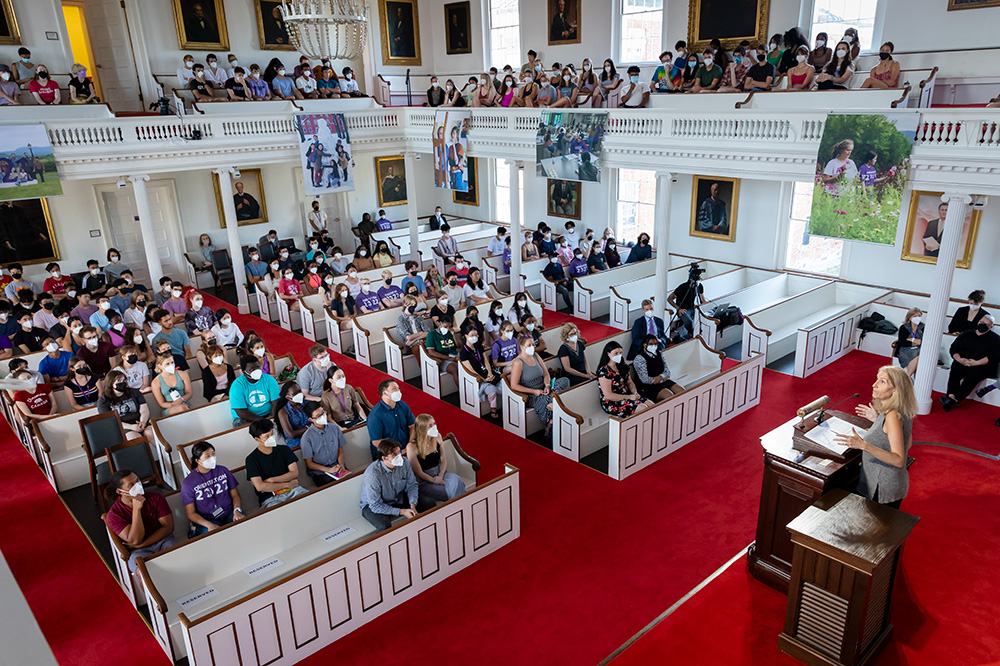Addressing new students at this year’s DeMott Lecture, Catherine A. Sanderson, the Poler Family Professor of Psychology, offered advice on how to get the most out of college. Her five pieces of wisdom—all research-based, some personal, some drawn from her books—can apply more broadly, whether in our jobs, hobbies or family lives

Take a Chance. Sure, Sanderson said, you’ll risk failure, disappointment and rejection. “But if you refuse to take chances, this also means you miss out on experiencing something really great.” She stressed that Amherst’s open curriculum is built for taking chances, but her example was more romantic than academic: As a Stanford undergrad, she told a guy that she had feelings for him. He was kind, but he only wanted to be friends. Later, she felt chemistry grow, and confessed again. Same story. After college, one day, he came to her apartment and said he was in love with her. Then the punchline: “That guy became my husband.”
Ignore the Crowd. Here, Sanderson recounted a study in which three students had to fill out a form, but two were planted by the researchers and told to just keep writing, no matter what happened. Then smoke was pumped into the space. It turned out that 90 percent of the remaining students did not speak up about the smoke. “In an ambiguous event, we look to other people for how to interpret this situation,” said Sanderson. “No one wants to feel stupid or embarrassed for overreacting—but then no one may step up.”
Get Enough Sleep. “Regular exercise is good, but regular sleep is a lot easier,” advised Sanderson. And it improves your daily life. She cited a study in which college athletes were given a number of physical tests before changing their sleep habits and after; in the second round, they scored significantly better.
Build Connections. Studies show that having a social circle enhances physical and mental health: “You may not find your community your first day or week,” said Sanderson. “But the connections you make with the people who are sitting in this room will have greater impact on your college experience than grades or win-loss records—and will stick with you for the rest of your life.”

Sanderson is a sought-out speaker on the science of happiness and the psychology of courage.
Photographs by Jesse Gwilliam and Maria Stenzel